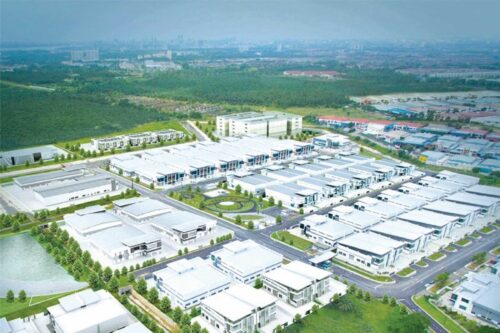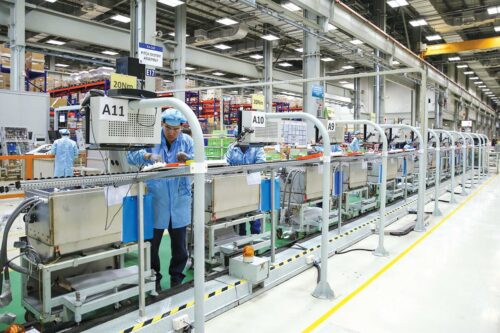By Dinh Hong Ky – Published on VnExpress, September 12, 2025.
Once, my wife and I attended a wedding in Ho Chi Minh City. The invitation said 5:30 p.m., and we arrived on time.
The hall was almost empty—just a few family members. The bride and groom hadn’t arrived either. It wasn’t until 7:30 p.m. that the banquet began. At that time, I didn’t know that in Ho Chi Minh City, a two-hour delay for a wedding was… perfectly normal.
The host had to bear all the additional costs: renting the venue longer, staff waiting around, lights and air conditioning running idle, extra service charges, and so on. For a hall with several hundred guests, just the electricity, air conditioning, and waiting staff could cost tens of millions of VND more. A cultural habit of “being late” had turned into a very real form of waste.
The mindset that “being late is no big deal” in daily life has gradually slipped into the workplace. Meetings starting late are often seen as normal. The default excuse: “Traffic jams, rain.” But traffic jams don’t happen to only one person. When lateness becomes “normal” in the office, it’s no surprise that society at large starts to rationalize… delays in public projects.
The Ben Thanh – Suoi Tien Metro Line No.1 is a typical example. Originally scheduled for operation in 2018, it will only start running at the end of 2024. Six years of delay have helped inflate costs from VND 17.4 trillion to 43.7 trillion. The difference could have built more than 500 schools or dozens of district-level hospitals. Behind those years of stagnation are not just financial losses, but millions of wasted commuting hours and missed development opportunities for the entire city.
The An Phu interchange, a key gateway connecting to the Long Thanh Expressway, is also expected to be delayed by at least a year. About 120,000 vehicles pass through daily. According to JICA (Japan International Cooperation Agency), the value of time lost due to traffic jams there is around USD 3–4 per vehicle per hour. If congestion lasts 15 minutes, that’s a loss of VND 2 billion per day; if 30 minutes, the loss doubles.
But not every province or city is slow. The Nhon Trach Bridge (Dong Nai), near the An Phu roundabout, was completed 2.5 months ahead of schedule, thanks to efficient organization and coordination. In Hanoi, the National Exhibition and Convention Center—the largest in Southeast Asia and among the top 10 globally—was completed in just 10 months, even though the plan allowed two years. These examples show that being on time, or even early, is entirely possible—with determination and strict coordination mechanisms.
In developed countries, delays are never considered normal. They are treated as a violation of public trust and always come with strict penalties.
-
In Singapore, public infrastructure contractors have been fined tens of millions of dollars for missing deadlines.
-
In Japan, national infrastructure projects follow a principle of “not even one day late,” and any delay means the responsible official must resign.
-
Hong Kong implements transparency: when a project falls behind, the government imposes financial penalties and forms an independent investigation committee to publicly identify the causes and those responsible.
What these places share is a commitment to real punishment, real transparency, and personal accountability. A one-month delay isn’t just a few pages of reporting—it means hundreds of billions of VND lost. Whoever causes it must pay the price: in money, in reputation, or even with their career or legal consequences.
In Ho Chi Minh City, we must face the truth: treating delays as “normal” is costing the city huge bills. The issue isn’t about construction capacity—contractors meet deadlines elsewhere. The real problem lies in a weak accountability system. Contractors blame land clearance; departments blame each other in a vicious cycle of excuses that normalize lateness.
The solution isn’t just about shouting slogans to “speed up progress.” Every infrastructure project must explicitly include reward–penalty clauses.
Finishing ahead of schedule should be rewarded.
Conversely, delays should not only mean financial fines, lost guarantees, and blacklisting, but criminal prosecution if they cause state asset losses. Only when accountability reaches the realm of criminal law can we truly deter and change the culture of delay.
The city could also install “cost clocks” for each project—digital displays showing how many billions of VND are being lost each day a project remains unfinished. When citizens see that “each day of delay at An Phu costs an extra 2–4 billion VND,” they’ll realize it’s their own tax money being wasted. Once the burden is named clearly, public pressure will drive real change.
More importantly, change must start from small habits.
A wedding should begin at the time printed on the invitation.
Meetings should close the doors after five minutes—no waiting for the latecomers.
Only when people learn to respect each other’s time can we demand punctuality from billion-dollar public projects.
Being on time is not just good manners.
At the scale of a megacity, punctuality is a competitive advantage.
If Ho Chi Minh City truly wants to rise as a regional hub, a livable and investable metropolis, it must start with a seemingly simple commitment:
Being late is a crime—and must come with consequences.
Dinh Hong Ky


